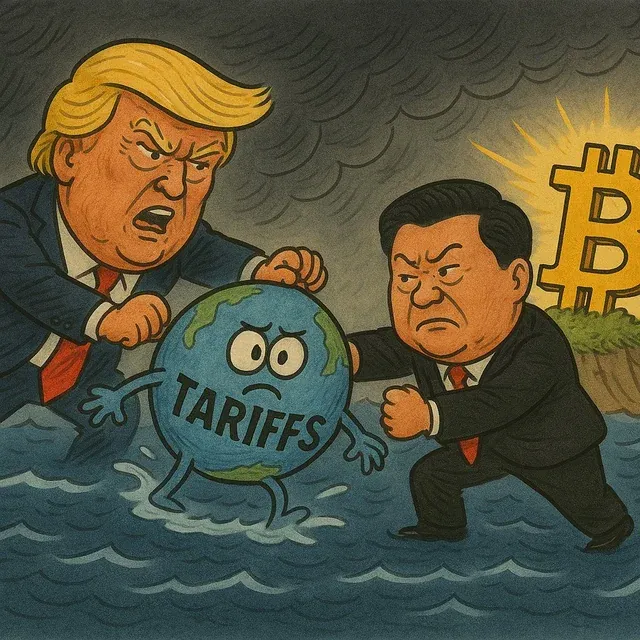Trade Conflicts, Inflation, and Bitcoin: How New Tariffs (Unintentionally) Promote Bitcoin
All of this suggests that Bitcoin is increasingly perceived as a hedge against market volatility and currency devaluation. The idea of “digital gold” is no longer a fringe notion – it is becoming a serious reality
Against this backdrop, one potential “beneficiary” is moving into focus: Bitcoin. The decentralized cryptocurrency was originally conceived as an alternative to the state-controlled monetary system – with the explicit promise of being resistant to inflation. In fact, Bitcoin’s supply is algorithmically limited: a maximum of 21 million bitcoins can ever be created. In a world where political conflicts such as trade wars devalue traditional money, this concept becomes increasingly appealing.Bitcoin cannot be “printed” by governments to cover budget deficits or fund trade wars. This monetary neutrality makes it a kind of digital gold.
Analysts argue that the current developments serve as advertising for Bitcoin. If the Federal Reserve, for example, is forced to inject liquidity or maintain low interest rates in response to the consequences of tariffs, awareness of the weaknesses in our debt-based fiat currency system grows.Confidence in the U.S. dollar as a stable store of value declines when its purchasing power is diminished by trade conflicts. Bitcoin, by contrast, is capped at 21 million units and symbolises both scarcity and monetary neutrality. Especially in an environment where traditional currencies are being undermined by inflation, Bitcoin is coming into sharper focus – not just as a speculative asset, but as a potential store of value in uncertain times.
Markets also seem to be gradually acknowledging this role. Amid recent market turbulence and a decline in the Nasdaq Index, Bitcoin has shown remarkable resilience.
At the same time, statements by heavyweights such as Larry Fink, CEO of BlackRock, are fuelling the debate. He sees Bitcoin as having the potential to replace the U.S. dollar as a reserve currency – particularly in light of the soaring U.S. national debt. A provocative thesis, but one that is gaining traction.
All of this suggests that Bitcoin is increasingly perceived as a hedge against market volatility and currency devaluation. The idea of “digital gold” is no longer a fringe notion – it is becoming a serious reality.
This trend can already be observed in countries with runaway inflation: in Argentina, for example, where inflation has surpassed 100%, many citizens are fleeing the peso and turning to cryptocurrencies to protect their savings. Around the world, institutional investors are increasingly searching for alternative assets in response to rising inflation, seeking to shield themselves from monetary debasement and government interference.Bitcoin is increasingly regarded as “digital gold”: an asset that is independent of central bank policy and whose value cannot be diluted by political decisions.






